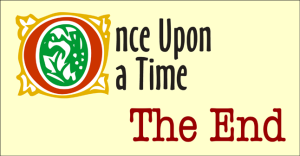 Every year in our book club we read the 2013 Hugo-nominated Short Stories and Novelettes (those that can be found online anyway) and discuss them at one of our semi-monthly meetings. I’m not sure how exactly to do a “Book Club Review” for a handful of shorts that aren’t bound together in a single work. So I will come out and say that yes – this is a very fun thing to do. Every SF/F book club should do it, I can’t recommend it enough. It makes for an interesting change from reading a single book. You get to compare different author’s styles and different story types. And since short stories are generally about delivering a cool concept in a short hard-hitting package there tends to be a ton of ideas to talk about. As a matter of fact, I wish we did these sorts of short-story discussions more often than once per year, they’re really cool! Definitely Recommended.
Every year in our book club we read the 2013 Hugo-nominated Short Stories and Novelettes (those that can be found online anyway) and discuss them at one of our semi-monthly meetings. I’m not sure how exactly to do a “Book Club Review” for a handful of shorts that aren’t bound together in a single work. So I will come out and say that yes – this is a very fun thing to do. Every SF/F book club should do it, I can’t recommend it enough. It makes for an interesting change from reading a single book. You get to compare different author’s styles and different story types. And since short stories are generally about delivering a cool concept in a short hard-hitting package there tends to be a ton of ideas to talk about. As a matter of fact, I wish we did these sorts of short-story discussions more often than once per year, they’re really cool! Definitely Recommended.
Since this makes for a rather short post, I’ll so do a quick few-lines review of each story.
“Immersion”, Aliette de Bodard – Great story, everyone took away something different from it. One member related to the idea of hiding yourself under layers of false fronts. Another spoke of immigration without integration – where people can seperate themselves and become immersed but isolated in a culture rather than assimilating. I was intrigued by the concept of off-loading so much of our mental tasks to outside devices (like iPhones) that we lose our human impetus and become program-executors instead.
“Mantis Wives”, Kij Johnson – No one understood this story. And we’ve got some fairly smart people in our group, not to be arrogant. It was too abstract, the point was lost within all that metaphor, which always makes me suspect maybe the author wasn’t quite sure what the point was in the first place. Closest we could figure is that we’re all going to die anyway, so one might as well make a beautiful art out of the living/dying. Maybe?
“Mono no Aware”, Ken Liu – A story that demonstrates exactly what Mono no Aware is by making the reader feel it (it is a sense of beauty in sadness, a glory in passing, but that explanation doesn’t do it justice). Good characterization and an inspiring portrait of the Japanese ideal of honor and unity. The ending was a little predictable, but there was no other ending this story could have had if it was to remain Mono no Aware.
“The Boy Who Cast No Shadow”, Thomas Olde Heuvelt – A metaphorical tale of children (well, teen boys) dealing with terminal illness. The bitterness that comes from its unfairness, and the acceptance of mortality.
“Fade To White”, Catherynne M. Valente – In our group this was everyone’s favorite novelette. A patriotic horror story that extends the 50’s mentality into the present day, taking it to its flag-waving and silently-screaming conclusion. So good!
“In Sea-Salt Tears”, Seanan McGuire – Given how much I disliked her second Newsflesh book, I was surprised by this novelette. Maybe McGuire has simply fallen prey to the common fate of good short-story writers who can’t transition to novel-length works. This story gave away its twist at the start, which was unfortunate, but aside from that it was a good story about desire, and choosing something you want over someone you love. I love that the ending was unapologetic.